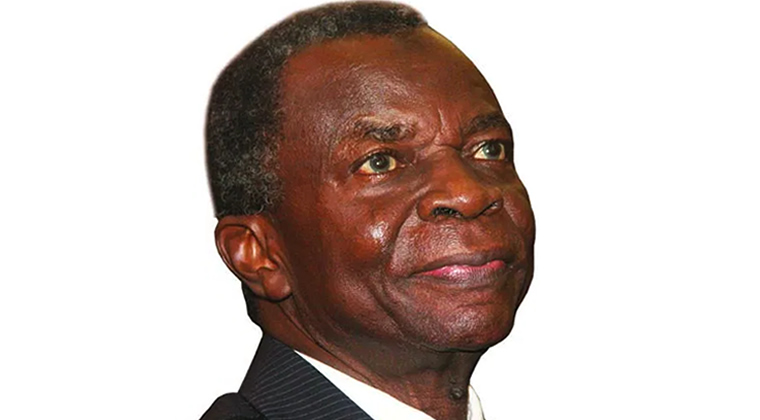IT should be one of the most typical examples of the old absurdity of an a priori arrival at an answer, while frantically searching for the appropriate question, for that answer. Last Thursday evening, the news broke of the “suspension” of Hon. Justice Isa Ayo Salami by the National Judicial Council, NJC; they asked him to relinquish his post to an “Acting President of the Court of Appeal” with immediate effect. Reports said the meeting which “suspended” Justice Salami was without its Acting President, Justice Dahiru Musdapher, who was attending the lesser hajj in Saudi Arabia. Similarly, Justice Ibrahim Auta, who authored the report which asked Justice Salami to apologize to the CJN, Katsina-Alu, also travelled to India. But pursuit to the onslaught against Justice Salami, they went ahead to name Justice Dalhatu Adamu as Acting President of the Court of Appeal.
The denouement in the long running battle in the Nigerian judiciary was long expected as the judiciary became increasingly controversial in the years of Nigerian civil rule, with accusations of judges becoming compromised and corrupt, especially in relation to political cases. It should be recalled that Justice Salami had accused the outgoing CJN, Justice Aloysius Katsina-Alu, of asking him (Salami) to compromise the Sokoto State governorship election petition by rigging the judgement in favour of the sitting governor.
Salami also instituted a lawsuit against the CJN, AGF, NJC and the FJSC, to stop a controversial “elevation” to the Supreme Court. The NJC reviewed the allegations before coming out with the equally controversial decision that Justice Salami should apologise to the CJN. Salami refused and returned to court seeking an order barring the judicial body from taking a decision in his case.
In the past week, Nigerians were treated to the amazing refusal of the NJC to accept the court summons for days. When it eventually did, it publicly alleged the summons was neither signed nor dated. It also curiously alleged to have received a letter from the Federal High Court, which purported that Justice Salami had withdrawn his case, thus enabling the NJC to sit, leading to the consequent “suspension” of Justice Salami.
Those who know these legal matters argue that the NJC cannot suspend the PCA. The activist lawyer, Jiti Ogunye, argued that the decision was “illegal and unconstitutional”; this is because the NJC knew Justice Salami has instituted an action in the High Court, “not only to challenge the constitutionality of the panels set up by the NJC to look into the crisis of confidence that is plaguing the Judiciary at the apex levels, the recommendations of the panels, but also the decisions of the NJC, based on those recommendations, chief among which was the directive of the NJC to Justice Salami to apologise to the outgoing CJN and the NJC for allegedly lying on oath”.
Jiti Ogunye argued further that: “Once a civil matter is placed before a court or judicial tribunal for adjudication, parties to the court action must refrain from doing anything capable of overreaching, undermining or foisting a fait accompli on the court. Doing so will not only be tantamount to subverting the rule of law, but also will amount to treating the court with contempt, the punishment of which is imprisonment”. The rule was laid down by the Supreme Court in the case of Governor of Lagos State vs.
Ojukwu (1986). Furthermore, the NJC “can only, competently, recommend his suspension, to the President, in deserving cases, and the President can only act on such recommendation if it is supported by a two-third address of the Senate”. Human rights lawyer, Femi Falana, also argued that “by suspending Justice Salami from office, the National Judicial Commission acted ultra vires”.
Similarly, Joseph Daudu, President of the Nigerian Bar Association, had urged the pre-conference meeting of the association “to condemn the action of the NJC in going into a matter which at the time was still before a superior court of record.
It is a matter of shame and regret that a judicial organisation of the calibre of the NJC can ride roughshod over the process of a law court, the implication for Nigerian judicial process is catastrophic”. The NBA President then added that “we shall not sit idly by and watch our profession ridiculed and brought into disrepute in the public domain”.
What is clear is that those who “suspended” Justice Salami are not unaware of the points of law, which the lawyers itemized that the NJC has acted illegally and unconstitutionally. In my view, they have acted the way they did because Justice Salami acted contrary to an esprit de corps which has led to an increasing exasperation with the Nigerian judiciary.
It is uncommon for our judges to expose efforts to compromise them, but Salami did; and he was willing to stand by his position. That represents a “danger” which must be punished and extirpated by the defenders of a judicial status quo that has become increasingly alienated from justice!
The grounds on which they have built a case against Justice Salami has been very slippery from the beginning but so determined were the powers that be to “deal” with the man that they were always willing to go the whole distance to remove the “dangerous example” that Justice Salami’s forthrightness represents in the corruption-infested world that the judiciary has increasingly become.
The inquisition has had its say, but it is not likely to have the last word in this matter. And in Nigeria’s interest, this is one point when honesty, decency and truth should be allowed to defeat iniquity, conspiracy, lies and corruption!


